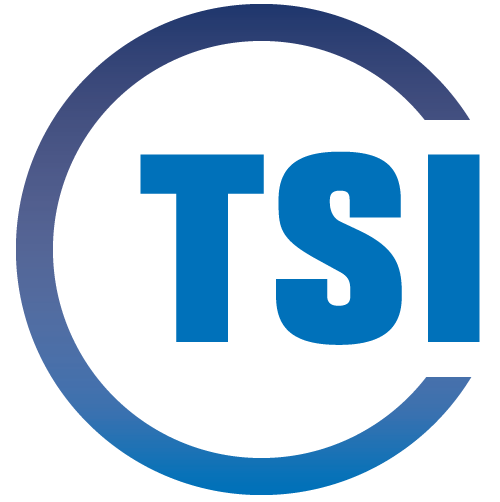Solutions At Your Fingertips Call us at 703-596-0022 or Book An Appointment
Ask The Tech
Ask us anything. We’re happy to take the time to explain everything in detail.
Below you’ll find a list of common IT questions you may already have experienced.
General IT Questions
There are a variety of topics: security of the network and individual computers, age of equipment as it relates to vulnerability, backing up data, storing data off-site for disaster recovery purposes. Compliance with security standards like those available through the National Institutes of Science and Technology and/or other industry-unique criteria.
TSI works well with existing IT departments, traditionally called “staff-augmentation.” Our roles in supporting existing IT departments can range from surge support for unexpected issues, an “independent” source of strategic planning, providing subject matter expertise not resident in the organization, implementing software/hardware infrastructure upgrades.
Technology is an amazing thing. It has many benefits and ways that it can help a company grow. I would say that if you want to grow your business, increase efficiency, performance, reduce costs, spend less time worrying about whether or not your computer is going to be slow, you should start looking into ways to improve your IT.
Selecting a computer is something TSI does every day for our Clients. We start with asking what tasks the user will perform as well as software used. This discussion lets us determine the type of internal processor is best, how much random–access memory is needed, and the size of the hard-drive storage is necessary and how long you anticipate using the computer. Word processing and spreadsheets is one level of usage. Complex graphics development, software development, large database manipulation, present different levels of usage. All of these uses influence price.
Upgrading to Windows 10 is something that we highly suggest, as Windows 7 is preparing for end of support in mid-January of 2020. With end of support, all Windows 7 computers that you have will no longer get security updates. Which is very important for both business and personal use, because then you are more prone to security breaches, viruses, all of the bad stuff that you don’t want.
VPN stands for Virtual Private Network. You can securely browse the internet on an unsecured network. For example, you’re connected to free Wi-Fi while at lunch. You don’t want to access your bank account on that free Wi-Fi, because there could be a perpetrator trying to access it.
MFA is Multi-Factor Authentication. MFA is a method of additional security to ensure those accessing computers, networks, applications, websites are authorized. Typical MFA methods are sending a numerical code to your cell phone or a text message, when logging in to your bank.
Definitely not on the bottom of your keyboard or sticky notes by your computer. There are password managers that can help with that. They are applications that you can use that will keep all your passwords safe for you.
No computer type is more or less secure than another. Macintosh computers initially we less susceptible because they were in a somewhat Apple-controlled environment, which is not the case today. There were also less Mac’s in the public domain than there are now. A Mac should be protected as any other type of computer.
MSP Questions
An MSP is an acronym for Managed Service Provider. MSPs provide Information Technology services in managing network and all the items within the office computer network, such as workstations, laptops, and servers.
A firewall acts as an information barrier between the Internet and an office computer network. A firewall controls all information coming in to and going out of a computer network.
A good anti–virus protects networks and computers from a variety of threats against computer viruses such as malware or spyware. Antivirus software is an important capability in the overall security of an office (or personal) computer network.
The cloud consists of computer software and hardware, physically housed in data-centers around the world, which deliver information to users. Companies store data in a secure cloud environment, which allows users to work anywhere an Internet access is available.
Cybersecurity Questions
Ransomware is the act of a perpetrator using software or code to attack and hold “ransom” a computer network. Ransomware is frequently disguised in an email attachment or link. When the link to the attachment, the software launches and the attack begins. Users can no longer access any information. All files and information is held “hostage” by the perpetrator until a “ransom” is paid by some means.
Phishing is the act of malicious intent to where a perpetrator is seeking information, like a username and password. Their goal is to get insider information and access to your organization, usually through an email or phone call. They are literally fishing for information. You should be on the lookout for this by paying attention to your emails, if you don’t recognize the sender, there are misspellings in the address, or it feels like something isn’t right, it probably isn’t.
VoIP Questions
The power and capacity of the internet allows for phone calls to be made over the internet. The days of dedicated phone lines from the “phone company” are becoming a thing of the past. TSI’s VoIP solution can be a significant cost savings from the traditional service. VoIP solutions also offer the capability for web-meeting and use of mobile application.
Businesses organizations benefit most from a VoIP phone implementation. All of TSI’s VoIP clients have realized a reduction in their monthly phone charges. Businesses have access to a significant amount of usage information, providing detailed insight to incoming and outgoing calls.
Don’t see an answer to your question? Ask us! We may post it on our page!
Contact Information
2525 Pointe Center Court, Suite 200
Dumfries, VA 22026
Phone: 703-596-0022
Email: info@tsiva.com
